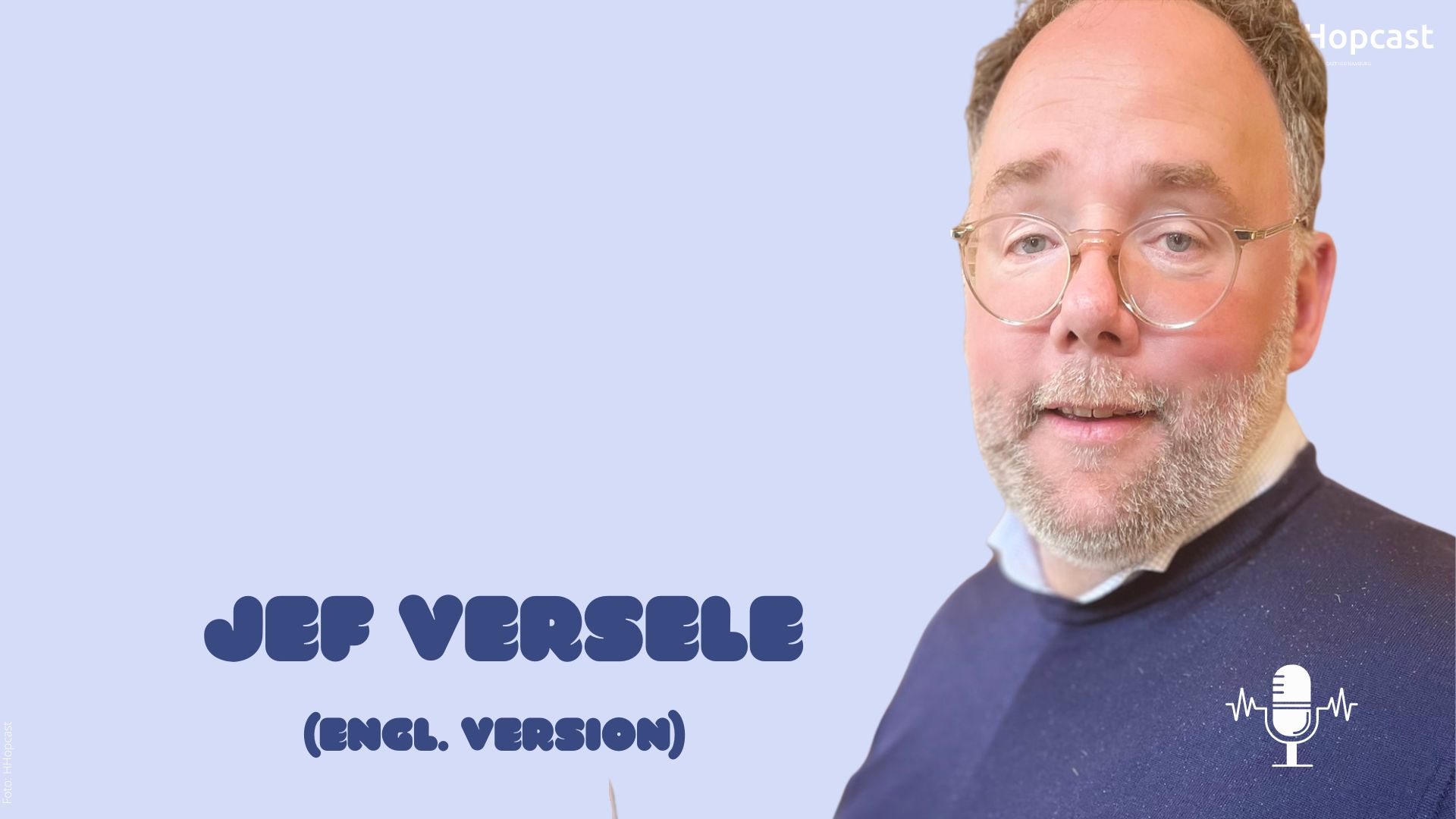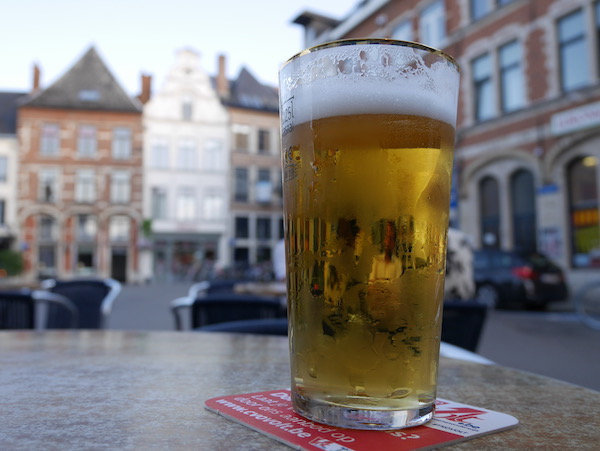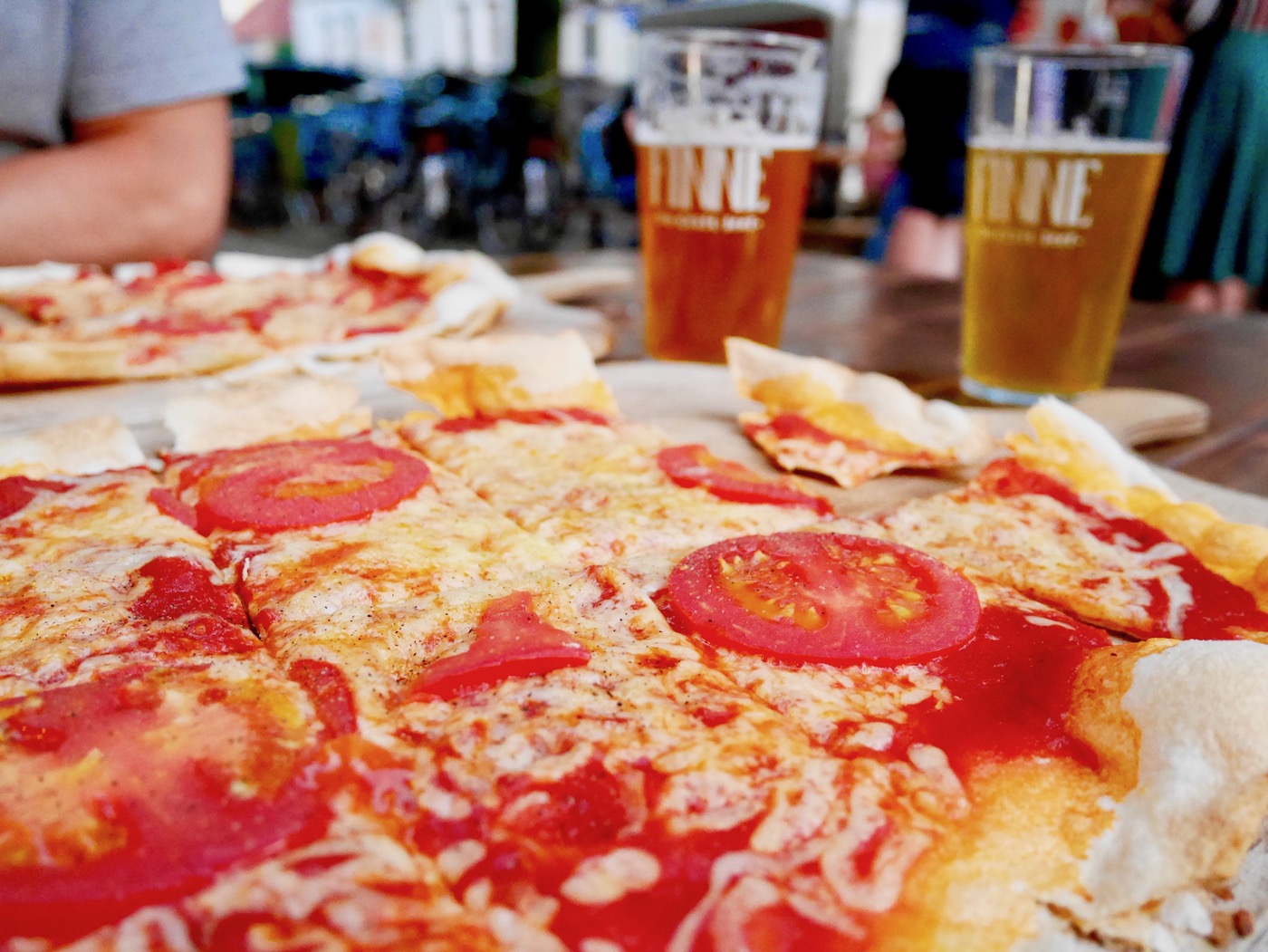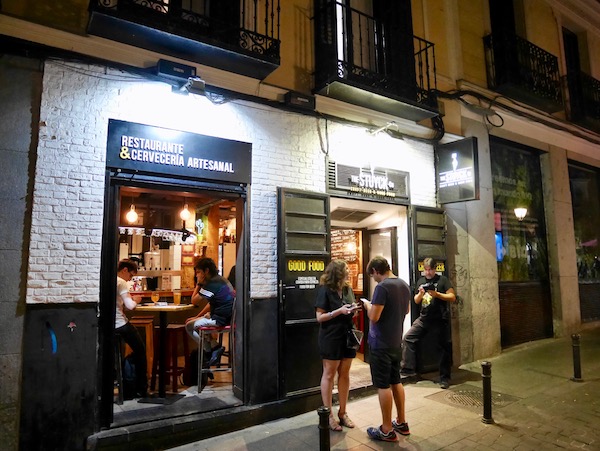Part I of our Belgium special: Jef Versele is the sixth generation to run Brouwerij Van Steenberge. Now he is reinventing himself a little – and putting beer in the spotlight in his microbrewery, brasserie and guest house Hopspot.
It all started on a farm in East Flanders, Belgium. Brouwerij Van Steenberge was founded in Evergem near Ghent in 1784. Today, the brewery says it produces 180,000 hectoliters a year, 85% of its beers are exported. At the top of the list: Italy. People there love strong, intense beers. Beers like those brewed by Van Steenberge. One of its best-known products is the Belgian Strong Ale Gulden Draak with 10.5% vol. Under the management of Jef Versele, the output of the medium-sized brewery has increased sixfold.
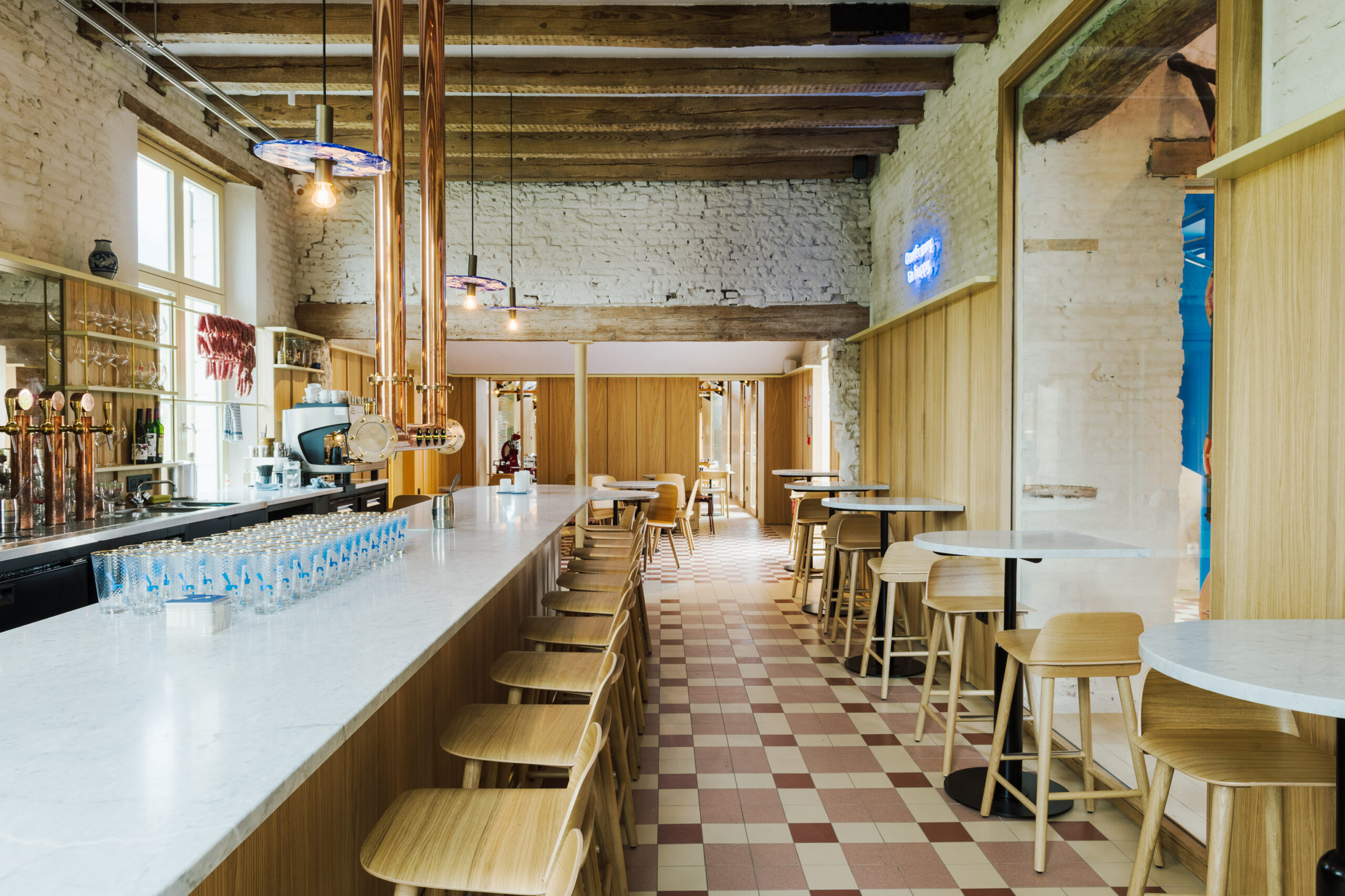
The bar area in the Hopspot (brasserie). There are only two taps suspended from the ceiling in Belgium, says Jef. Here and in Brussels.
Foto: Hopspot/Van Steenberge
“95% are high fermented beers who are refermented. So we export today to about 74 countries.”
Jef Versele
According to Jef, one reason for the success is the focus on specialty beers. His grandfather switched the brewing process from bottom fermentation to high fermentation (hot fermentation) and second fermentation (bottle fermentation) in the 1960s/70s. His grandson also remained true to this line.
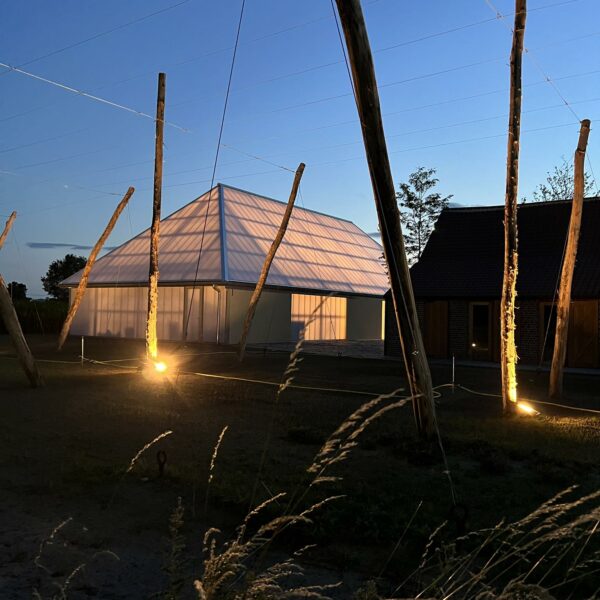
Die Brauerei im Dunkeln./ The brewery in the dark. Foto: Van Steenberge / Hopspot
Die Brauerei im Dunkeln./ The brewery in the dark. Foto: Van Steenberge / Hopspot
“People always said, we always been going against the trends. (…) I don’t need to make beer that everybody is making.”
Jef Versele
Why does Jef Versele want to get crafty?
It could go on like this were it not for the current national and international developments on the beer market. According to VRT News, Belgian breweries exported 22% less beer abroad last year. Sales are also falling in Belgium itself. This is due to rising beer prices in the hospitality industry and high energy and labor costs, according to the. According to the Federal Agency for Foreign Trade in Brussels, this is due to rising beer prices in the hospitality industry and high energy and labor costs. This is driving up prices for specialty beers in cafés and pubs in particular. They are now between 5 and 6 euros. “We are too big to be small and too small to be big,” says Jef Versele. That doesn’t make competition any easier. What’s more, non-alcoholic and light beers are becoming increasingly popular. That doesn’t really fit in with Van Steenberge’s concept. And now?
His grandfather’s best friend once gave him the following advice:
“If you want to survive as a small brewery, you have to reinvent yourself.”
Time to reinvent yourself.
Hopspot tells beer story(s)
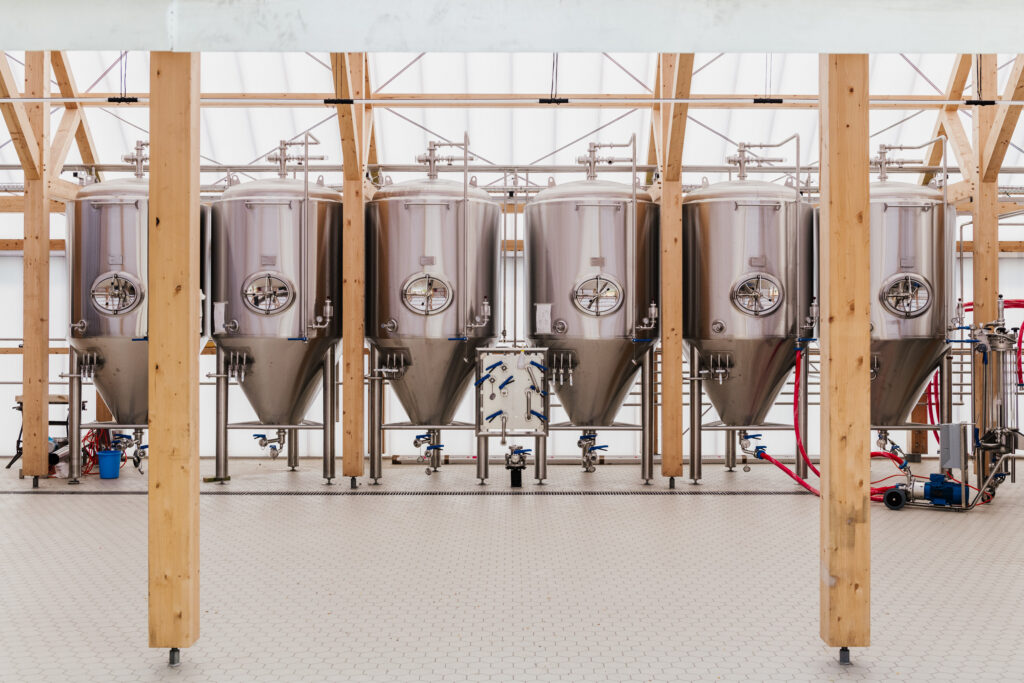
The Braukon plant can achieve an output of 4000 hectolitres per year.
Foto: Hopspot / Van Steenberge
This is where the craft beer trend of recent years comes into play. Jef is watching it with interest. The storytelling, the idea of bringing beer to life as a regional product. He realizes that Van Steenberge’s story needs to be told differently.
“We are considered as a commercial brewery on Belgium level. And I was missing out on a few craft beer scenes,” says Jef. “They would say like: Jef, you are not crafty enough. Your beer is too common, your beer is everywhere.”
This is exactly why Hopspot was founded.
The microbrewery, brasserie and guest rooms are less than 1 kilometer away from Brouwerij Van Steenberge in Evergem. Jef drove past the property every day on his way to the office until he finally bought it in 2022. It was originally a small farm that had seen its best days. He contacted the mayor and asked for permission to buy the land to build a microbrewery with a capacity of 4,000 hectoliters. To give something back to the community and show guests how beer is made. He wants to bring the magic behind it to life and at the same time tell his own family story. As we know, it all began on a farm. In Sophie Cornelis and Lorenzo De Block, he has found two strong partners to develop and implement the events in and around Hopspot.
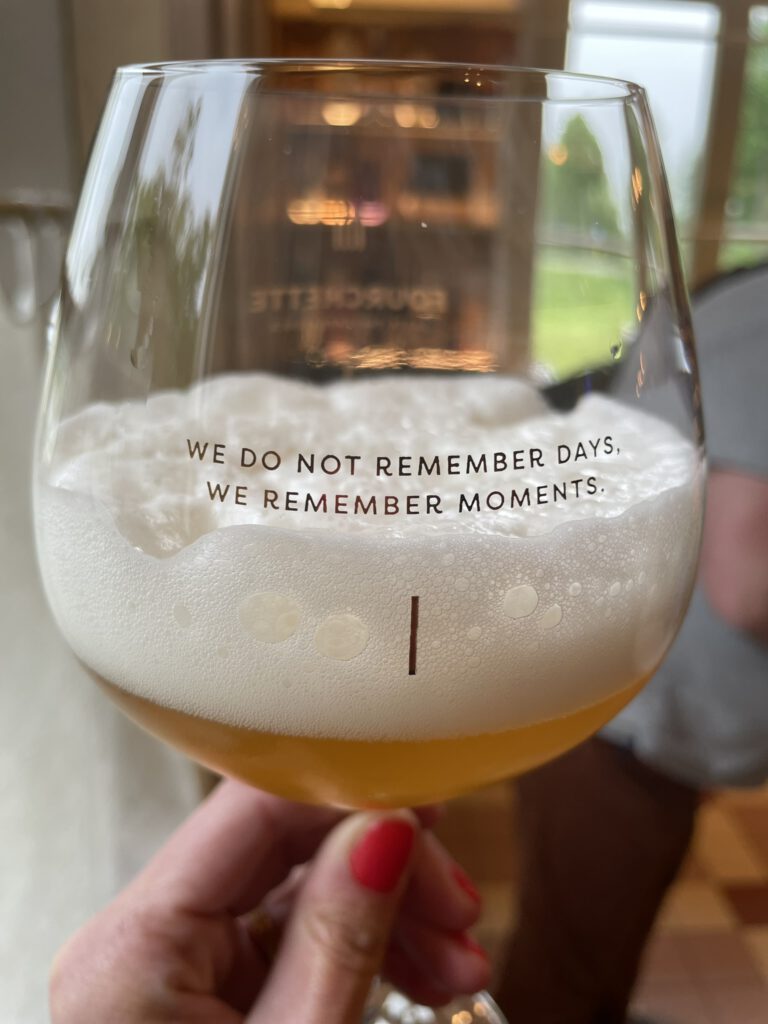
Local is the new big
“Advise them what you can eat with beer.” That’s the idea behind Hopspot. Knowing how beer is brewed is one thing. Linking it to the topic of enjoyment and unlocking the potential of the drink is the other.
“I’m very surprised that this is possible on the level of cooking with beer and serving the correct beer with the menu.”
Jef Verselen
Together, the team wants to further develop the beer menus. This is not only promising in terms of marketing, but also economically. Local is the new big, Jef Verselen is certain. The commitment to regionality is also reflected in the menu. The ingredients come from the region, from farm to table. In gastronomy, this is one of the megatrends of the future.
Beers such as the Fourchette Grand Cru provide surprises in the glass. The beer is aged for more than ten months in Sauvignon Blanc barrels. It is the premium version of the multi-grain Fourchette beer, a blend of Belgian Tripel and floral Witbier, which Van Steenberge developed together with Belgian star chefs. “Passion & Patience” is what makes it special, like all their beers, says Jef. Of course, this is also available at Hopspot. There will also be a non-alcoholic beer here. Hopspot should be a place for discovery and experimentation, for the guests and for the makers. In terms of taste and appearance.
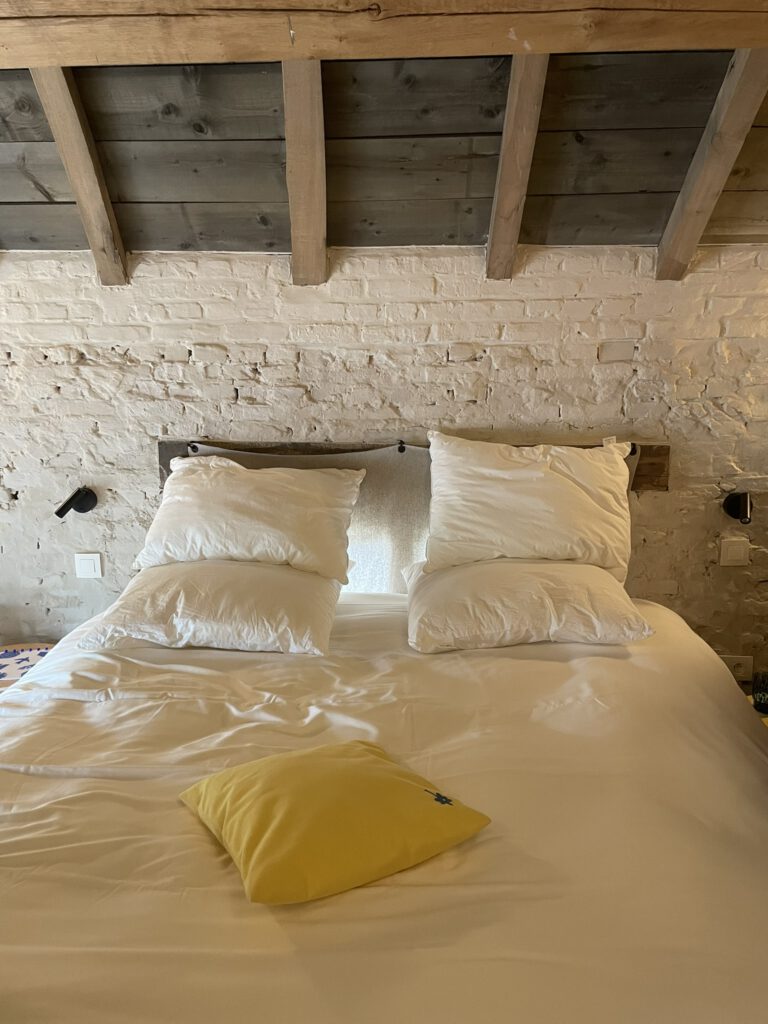
Passion & Patience
During the day, the hall with the brewing system looks rather brittle. In the evening, the light from inside shines through the bright, translucent polycarbonate cladding and highlights the roof construction. The brasserie has a bright and modern design, the brickwork in the rear bar area is whitewashed and harmonizes well with the light wooden beams. There are four guest rooms in the Hopspot. A double bed, a small bathroom, oak wood, white brickwork and a touch of azure, cozy. The night costs from 120 euros. It should be uncomplicated here, says hotel and event manager Sophie. A mixture of Airbnb and bed & breakfast. Hopspot is not big, but it is special. The place surprises on many levels. What was that like? If you want to survive as a small brewery, you have to reinvent yourself. Or reflect on what was, is and will be: On passion & patience.
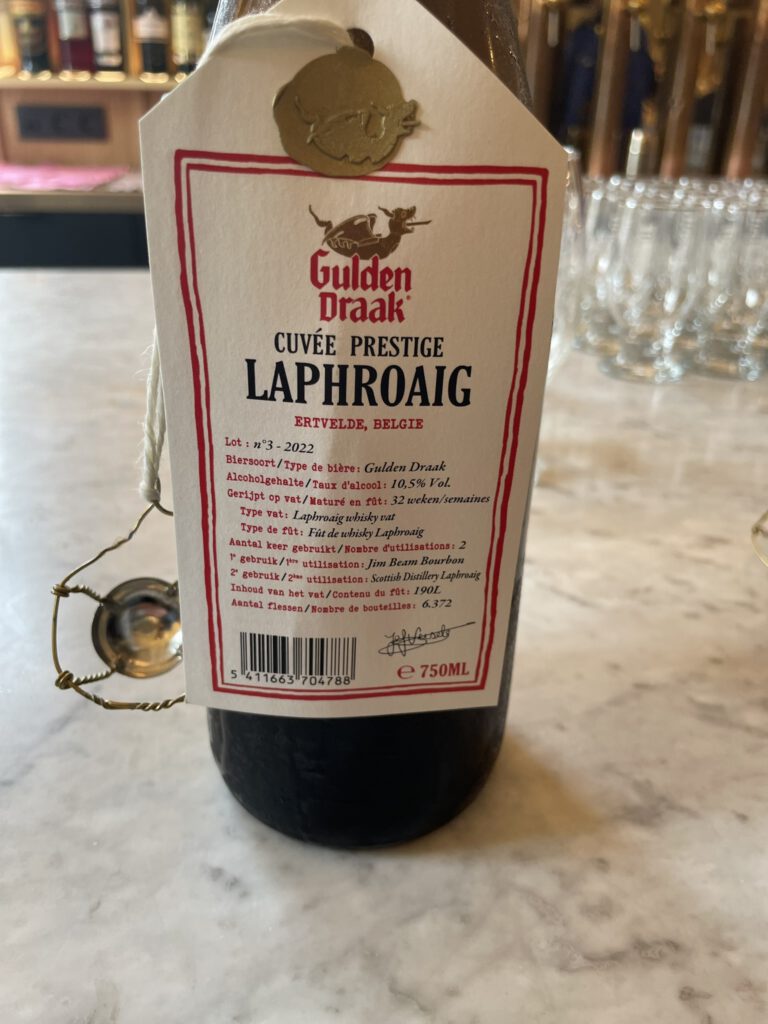
Text: Regine Marxen

